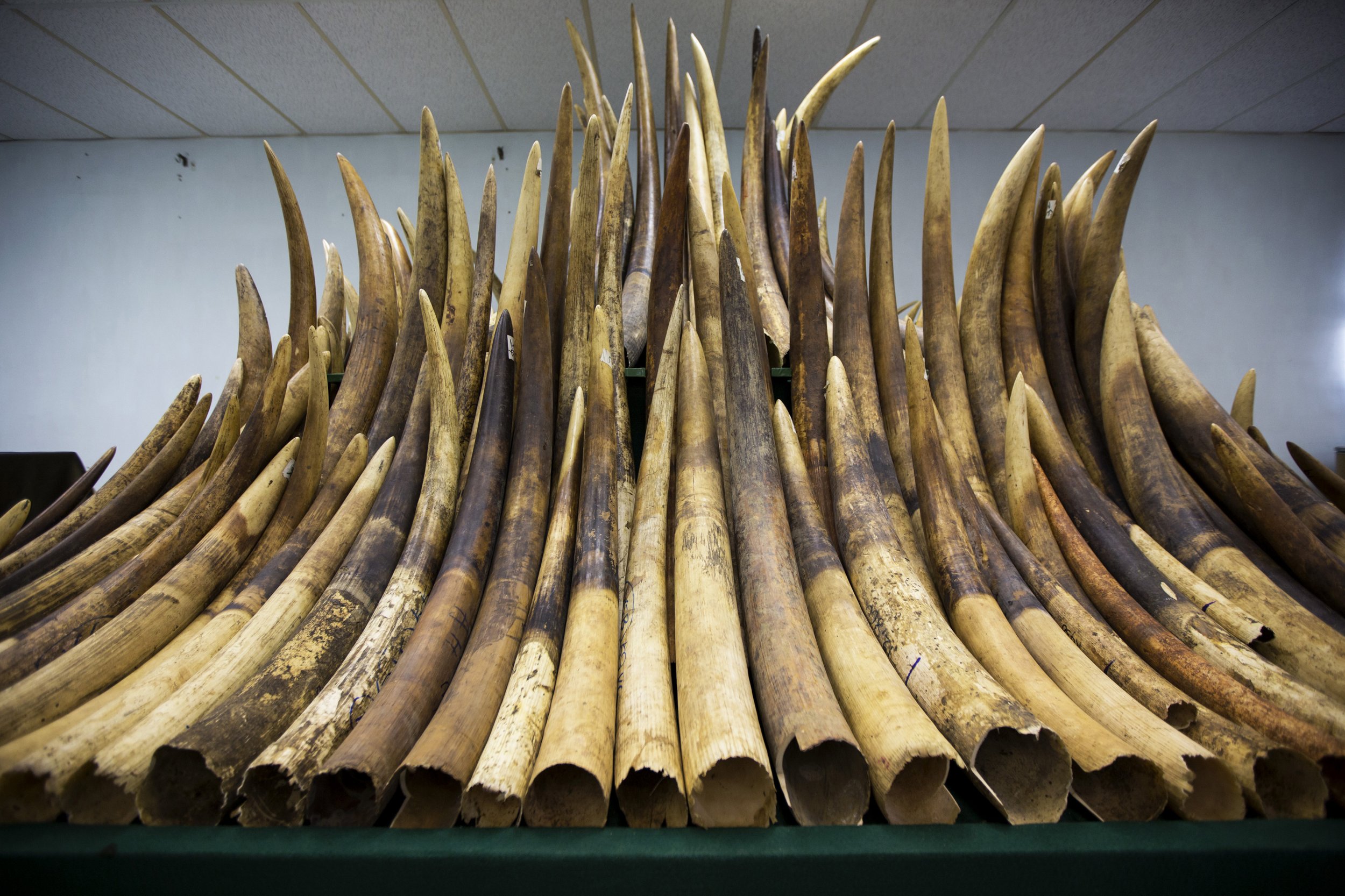
Chinese government officials travelling as part of a presidential delegation to Tanzania used the trip to purchase large amounts of ivory, a report by an environmental watchdog said today. Chinese nationals, including high-level political and military aides are among those blamed for the decline of Tanzania's elephant population due to the illegal trade in ivory in the report by the Environmental Investigation Agency (EIA).
The report points the finger at officials who accompanied president Xi Jinping on an official visit to Tanzania, saying that they "used the opportunity to procure such a large amount of ivory that local prices increased". The report cited two local traders who claimed that the Chinese began purchasing "thousands of kilos of ivory" two weeks before the visit, and smuggled them out of the country via diplomatic bags, and even the presidential plane.
The EIA, a London-based NGO which conducts undercover investigations into environmental crime, also alleged that a four day visit from the Chinese fleet en route from anti-piracy operations on the coast of Somalia last year triggered a "surge in business" for ivory traders in Dar es Salaam, the country's largest port.
The report blamed "a toxic mix of criminal syndicates, often led by Chinese nationals, and corruption among some Tanzanian government officials" for the decline of the country's elephant population, which has decreased by 50% in the past five years and two-thirds since 2006.
The elephant population in Tanzania's Selous Game Reserve, which was made a UNESCO world heritage site at the start of this year in an attempt to protect the elephant population, dropped by 67% from 39,000 in 2009 to just 13,000 in 2013. During the 1970s, the Selous herd numbered over 100,000.
Ivory trafficking has serious security and economic implications for Tanzania. Tourism, dominated by safaris, is one of the country's key sources of revenue, generating almost 2 billion US dollars a year and employing around a fifth of the country's workforce. The report said that declining elephant populations, and the presence of armed poachers in game reserves would put off tourists.
Shruti Suresh, a campaigner from the agency, said that the EIA's investigations had revealed "a very tight network of criminals operating in the trade - these are serious organised groups, led by Chinese nationals". She added that the ring also includes "corrupt Tanzanian officials at key stages in the trade, as well as a number of Tanzanian poachers and middlemen".
"Marine products, like dried fish and sea shells, are often used as a cover for trafficking in ivory, a way of thwarting law enforcement. We know this from not just from investigations, but from several major seizures of ivory that have taken place around the world."
Suresh said that China is "by far the biggest ivory poacher in the world" and attributed its poor record to UN backed legislation which in 2008 permitted China to purchase a legal stockpile of 68 tons of African ivory. It was hoped at the time that the legislation would lead to greater transparency in the industry and help end the black market. According to Suresh, however, "it played a huge role in stimulating demand and trade for the product, and we increasingly find that there is a nexus between legal and illegal ivory trading".
Suresh said that the legislation had effectively created a smokescreen for illegal ivory to be laundered into the legal market, with traders often recycling their government permits to do so. "The notion of a legal trade is a myth", she added.
The EIA believes that part of the solution to the crisis rests with the international community. "World governments must close domestic markets for illegal ivory - particularly in China - and to look at ways in which criminal syndicates can be dismantled".
Uncommon Knowledge
Newsweek is committed to challenging conventional wisdom and finding connections in the search for common ground.
Newsweek is committed to challenging conventional wisdom and finding connections in the search for common ground.





